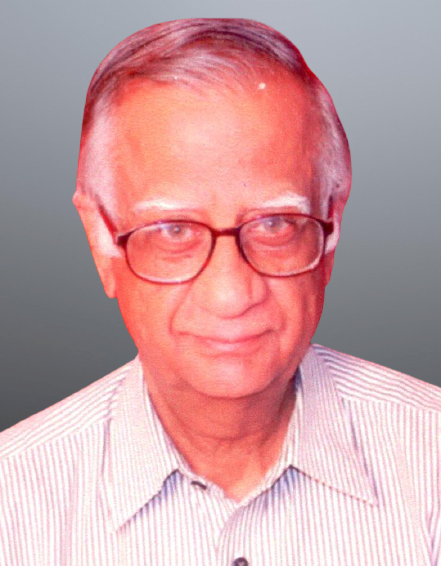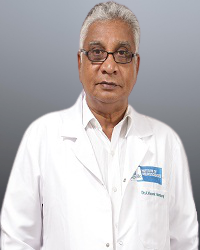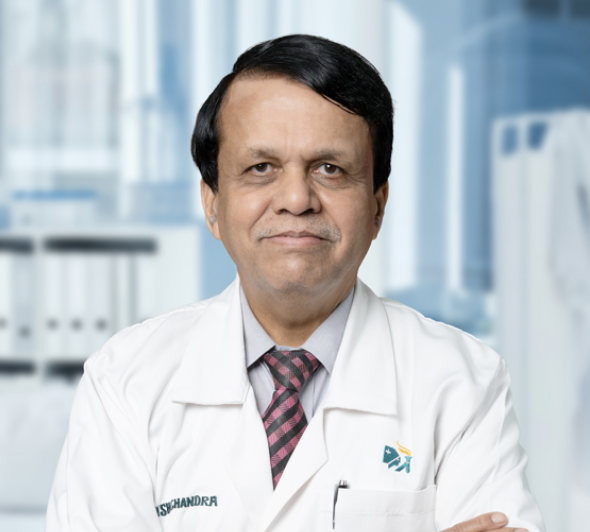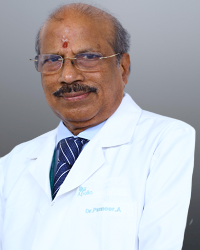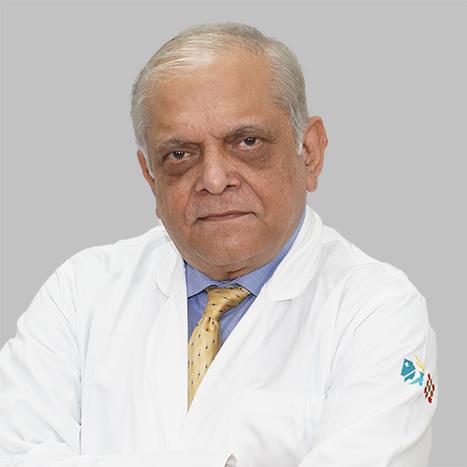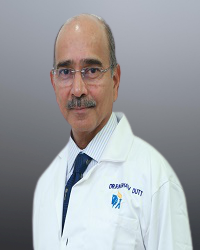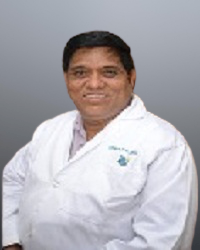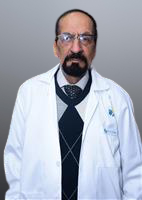Could not find what you are looking for?
- Departments
- Best Neurology Hospital In India | Top Hospital For Neurosurgery - Apollo Institute of Neurosciences
- Best Hospital For Pediatric Neurosurgery In India
Best Hospital for Pediatric Neurosurgery in India
Pediatric Neurosurgery Services at Apollo Hospitals
Overview
Pediatric neurosurgery is a specialized field that focuses on diagnosing and treating neurological disorders in children. This branch of medicine addresses a wide range of conditions affecting the brain, spine, and nervous system. Given the unique anatomical and physiological differences between children and adults, pediatric neurosurgery requires a specialized approach that considers the growth and development of young patients.
At Apollo Hospitals, our dedicated pediatric neurosurgery department provides comprehensive care for conditions including:
- Brain tumors - including benign and malignant growths requiring surgical intervention
- Hydrocephalus - excess fluid in the brain requiring shunt placement or endoscopic procedures
- Craniosynostosis - premature fusion of skull bones affecting brain growth and development
- Spina bifida - congenital defects of the spine and spinal cord
- Chiari malformations - structural defects at the base of the skull affecting brain and spine
- Traumatic brain injuries - requiring prompt surgical intervention
- Epilepsy - seizure disorders that may benefit from surgical treatment
- Vascular malformations - abnormal blood vessel formations in the brain or spine
- Tethered cord syndrome - restricted movement of the spinal cord causing neurological problems
At Apollo Hospitals, we understand that facing a neurosurgical condition can be daunting for both children and their families. Our commitment to providing compassionate, patient-centered care ensures that every child receives the best possible treatment tailored to their specific needs. With a team of highly skilled specialists and state-of-the-art technology, we strive to deliver outcomes that enhance the quality of life for our young patients.
Our Expertise & Why Choose Apollo
Apollo Hospitals stands at the forefront of pediatric neurosurgery in India, offering unparalleled expertise in the diagnosis and treatment of childhood neurological disorders. When you choose Apollo for your child's neurosurgical care, you benefit from:
Comprehensive Neurosurgical Excellence
- Multidisciplinary brain tumor program integrating surgical, oncological, and radiological expertise
- Specialized hydrocephalus clinic offering shunt and endoscopic treatment options
- Craniofacial surgery center for craniosynostosis and skull reconstruction
- Comprehensive epilepsy program providing surgical options for medication-resistant seizures
- Spinal dysraphism clinic for complex spinal cord malformations
- Neurotrauma services providing emergency and long-term care for injuries
- Neurovascular program addressing complex vascular malformations
- Neuroendoscopy services offering minimally invasive surgical options
Advanced Surgical Expertise
- Minimally invasive techniques reducing recovery time and surgical trauma
- Endoscopic skull base surgery accessing hard-to-reach tumors
- Precision tumor resection preserving critical brain structures
- Complex craniofacial reconstruction restoring function and appearance
- Intricate spinal procedures addressing congenital and acquired conditions
- Epilepsy surgery mapping identifying and preserving functional brain areas
- Intraoperative neurophysiological monitoring enhancing surgical safety
- Advanced neuronavigation ensuring surgical precision
Multidisciplinary Team Approach
- Pediatric neurosurgeons specialized in children's unique neurological needs
- Pediatric neurologists managing medical aspects of neurological conditions
- Neuroradiologists providing specialized imaging interpretation
- Neuropathologists offering precise tissue diagnosis
- Neuro-oncologists managing brain and spinal cord tumors
- Pediatric anesthesiologists ensuring safe surgery for children
- Neuropsychologists assessing cognitive function before and after surgery
- Rehabilitation specialists supporting recovery and function
Apollo Hospitals is recognized as a leader in pediatric neurosurgery, combining advanced medical expertise with a compassionate approach to care. Our team consists of experienced neurosurgeons, pediatricians, and allied health professionals who work collaboratively to provide comprehensive treatment plans.
Choosing Apollo means choosing a facility that prioritizes your child's health and well-being. Our commitment to excellence extends to research and innovation, allowing us to offer the latest treatment options and technologies. We believe in involving families in the treatment process, providing education and support to help families understand their child's condition and treatment options.
Treatment Options for Pediatric Neurosurgery
At Apollo Hospitals, we offer a comprehensive range of treatment options for various pediatric neurological conditions. Our approach is tailored to each child's unique needs, ensuring the most effective care with the least possible intervention:
Brain Tumor Management
- Microsurgical resection using high-powered microscopes for precise tumor removal
- Minimally invasive approaches reducing brain exposure and surgical trauma
- Laser interstitial thermal therapy (LITT) treating select tumors with heat
- Stereotactic biopsy obtaining tissue diagnosis with minimal invasion
- Awake craniotomy for tumors in language and motor areas (in older children)
- Intraoperative MRI confirming complete tumor removal during surgery
- Post-surgical chemotherapy coordination in partnership with oncology
- Proton therapy planning for radiation sensitive tumors
- Molecular targeted therapies based on tumor genetic profiles
Hydrocephalus Treatment
- Ventriculoperitoneal (VP) shunt placement diverting excess cerebrospinal fluid
- Endoscopic third ventriculostomy (ETV) creating an alternative fluid pathway
- ETV with choroid plexus cauterization reducing CSF production when appropriate
- Programmable shunt valves allowing non-invasive pressure adjustments
- Shunt revision procedures addressing complications or outgrown systems
- Ventricular access devices for temporary drainage and medication delivery
- Minimally invasive shunt placement reducing surgical impact
- Remote monitoring shunt systems detecting early malfunction
- Long-term management protocols monitoring growth and development
Craniofacial Surgery
- Endoscopic suturectomy for early craniosynostosis correction
- Cranial vault remodeling reshaping the skull for optimal brain growth
- Distraction osteogenesis gradually reshaping the skull
- Fronto-orbital advancement correcting forehead and orbital deformities
- Total cranial vault reconstruction for complex cases
- Spring-mediated cranioplasty using dynamic expansion devices
- 3D-planned surgical approaches optimizing cosmetic and functional outcomes
- Minimally invasive techniques reducing surgical scars
- Team approach with plastic surgery addressing comprehensive needs
Epilepsy Surgery
- Video-EEG monitoring identifying seizure origins
- Corpus callosotomy disconnecting brain hemispheres to prevent seizure spread
- Lesionectomy removing seizure-causing tissue
- Temporal lobectomy for temporal lobe epilepsy
- Hemispherectomy/hemispherotomy for seizures affecting one hemisphere
- Multiple subpial transections interrupting seizure pathways
- Responsive neurostimulation implanting seizure detection and treatment devices
- Vagus nerve stimulation providing ongoing seizure control
- Ketogenic diet support as an adjunct to surgical intervention
Spinal Disorders
- Myelomeningocele repair closing open neural tube defects
- Tethered cord release freeing the restricted spinal cord
- Detethering procedures for recurrent tethering
- Spinal lipoma resection removing fatty tumors of the spine
- Spinal tumor removal preserving neurological function
- Spinal instrumentation stabilizing the spine after surgery
- Growing rod techniques accommodating continued growth
- Syrinx management addressing fluid-filled cavities in the spinal cord
- Complex spinal reconstruction correcting congenital deformities
Vascular Interventions
- Arteriovenous malformation (AVM) treatment eliminating abnormal vessel connections
- Cavernous malformation resection removing vascular lesions
- Moyamoya disease revascularization improving brain blood supply
- Aneurysm clipping preventing hemorrhage
- Collaborative endovascular approaches with interventional radiology
- Stereotactic radiosurgery planning for deep vascular lesions
- Combined open and endovascular techniques for complex cases
- Bypass procedures restoring blood flow to critical areas
- Long-term vascular monitoring protocols tracking malformation changes
Neurotrauma Management
- Emergency craniotomy relieving pressure from blood clots
- Decompressive craniectomy managing severe brain swelling
- ICP monitoring tracking and controlling intracranial pressure
- CSF diversion managing post-traumatic hydrocephalus
- Depressed skull fracture elevation restoring normal skull contour
- Growing skull fracture repair addressing pediatric-specific injuries
- Cranioplasty reconstructing the skull after emergency surgery
- Rehabilitation coordination optimizing recovery
- Long-term follow-up monitoring developmental outcomes
Each treatment plan is developed through careful assessment and shared decision-making with families, considering the child's specific condition, age, developmental stage, and long-term needs. We regularly reassess and refine treatment approaches based on the child's response and changing needs as they grow.
State-of-the-Art Technology
Apollo Hospitals is equipped with cutting-edge technology that enhances our ability to diagnose and treat pediatric neurological conditions effectively:
Advanced Neuroimaging
- 3-Tesla MRI scanners providing exceptional neural tissue detail
- Functional MRI (fMRI) mapping critical brain functions before surgery
- Diffusion tensor imaging (DTI) visualizing critical white matter tracts
- Tractography mapping neural pathways for surgical planning
- Perfusion imaging assessing blood flow to brain tissue
- Spectroscopy analyzing brain tissue composition non-invasively
- PET-CT scanning identifying areas of abnormal metabolism
- SPECT imaging evaluating blood flow and seizure foci
- Low-radiation pediatric protocols minimizing exposure during CT scanning
Neurosurgical Navigation
- Stereotactic neuronavigation systems providing GPS-like guidance during surgery
- Intraoperative MRI confirming tumor removal during procedures
- Ultrasound-based navigation providing real-time imaging updates
- Fluorescence-guided surgery highlighting tumor tissue
- Fiber-optic tracking systems mapping neural pathways during surgery
- Frameless stereotaxy enabling precise targeting without rigid frames
- Integration with preoperative planning software enhancing surgical precision
- Augmented reality visualization overlaying critical structures
- Robotics-assisted positioning enhancing surgical stability
Intraoperative Monitoring
- Continuous EEG monitoring tracking brain activity during surgery
- Evoked potential monitoring protecting critical neural pathways
- Electrocorticography mapping seizure foci in epilepsy surgery
- Direct cortical stimulation identifying functional areas
- Cranial nerve monitoring preserving facial and other nerve functions
- Brainstem auditory evoked responses protecting hearing pathways
- Somatosensory evoked potentials monitoring sensory pathways
- Motor evoked potentials preserving movement control
- Multimodality monitoring integration providing comprehensive protection
Specialized Surgical Equipment
- High-definition surgical microscopes enhancing visualization
- Pediatric neuroendoscopes for minimally invasive procedures
- Specialized microsurgical instruments sized for pediatric anatomy
- Ultrasonic aspirators precisely removing tumors while sparing vessels
- Laser systems for precision tissue ablation
- Programmable shunt valves adjustable without additional surgery
- 3D-printed surgical guides customized for individual anatomy
- Stereotactic radiosurgery planning systems for non-invasive treatment
- Advanced hemostatic agents improving surgical safety
Rehabilitation Technology
- Computerized cognitive assessment tools tracking brain function
- Virtual reality rehabilitation systems making therapy engaging
- Robotic gait training assisting with walking recovery
- Adaptive equipment supporting independence
- Brain-computer interfaces exploring new communication pathways
- Telerehabilitation platforms continuing therapy at home
- Assistive communication devices helping non-verbal children
- Mobility aids customized for neurological conditions
- Sensor-based activity monitoring tracking recovery progress
These advanced technologies not only improve diagnostic accuracy and treatment effectiveness but also enhance the patient experience by reducing discomfort and providing more precise interventions with faster recovery. Our commitment to technological advancement ensures that children with neurological disorders receive the most up-to-date and evidence-based care available.
Team of Experts
Our pediatric neurosurgery team at Apollo Hospitals comprises highly trained and experienced professionals dedicated to providing the highest standard of care:
Surgical Team
Multidisciplinary Collaborators
Support Team
Our collaborative team approach ensures that every aspect of your child's neurological health is addressed from diagnosis through rehabilitation. Regular tumor boards, case conferences, and interdepartmental meetings allow our specialists to share insights and develop comprehensive treatment plans tailored to each child's unique needs.
The pediatric neurosurgery team maintains continuous professional development through ongoing education, research participation, and international collaboration, ensuring that our patients receive care aligned with the latest advances in the field.
Frequently Asked Questions
What conditions are treated by pediatric neurosurgeons?
Pediatric neurosurgeons at Apollo Hospitals treat a wide range of conditions affecting the brain, spine, and nervous system, including:
- Brain tumors - both benign and malignant
- Hydrocephalus - buildup of cerebrospinal fluid in the brain
- Craniosynostosis - premature fusion of skull bones
- Spina bifida and other neural tube defects - congenital spinal abnormalities
- Chiari malformations - structural defects at the base of the skull
- Tethered spinal cord - restricted movement of the spinal cord
- Traumatic brain injuries - requiring surgical intervention
- Epilepsy - when seizures don't respond to medication
- Vascular abnormalities - including arteriovenous malformations
- Congenital cysts - abnormal fluid-filled sacs in the brain or spine
Our pediatric neurosurgeons work closely with other specialists to provide comprehensive care for these complex conditions, considering both immediate needs and long-term developmental implications.
How do I know if my child needs neurosurgery?
Signs that may indicate your child needs neurosurgical evaluation include:
- Persistent headaches, especially those waking your child from sleep
- Seizures or unexplained episodes of loss of consciousness
- Developmental delays or regression in developmental milestones
- Abnormal head growth (either too fast or too slow)
- Weakness, numbness, or coordination problems affecting limbs
- Vision changes including double vision or loss of vision
- Balance problems or difficulty walking
- Persistent vomiting, especially in the morning
- Unusual behavior changes or personality alterations
- Abnormal head shape or premature closure of soft spots
If you notice these symptoms, consultation with a pediatrician is recommended, who may then refer you to a pediatric neurologist or neurosurgeon. Early evaluation is important as many neurological conditions respond better to prompt treatment.
What can I expect during my child's neurosurgery?
The neurosurgical process typically involves several phases:
Before surgery:
- Comprehensive consultation explaining the procedure, risks, and benefits
- Preoperative testing and imaging to plan the surgical approach
- Meeting with the anesthesia team to discuss sedation
- Age-appropriate preparation for your child by child life specialists
- Instructions on fasting requirements and medication management
Day of surgery:
- Arrival at the designated time for preoperative preparation
- Final checks and meeting with the surgical team
- Anesthesia administration in a child-friendly manner
- The actual surgical procedure, which may last from 1-8+ hours depending on complexity
- Regular updates to family members during longer procedures
After surgery:
- Recovery in a specialized pediatric intensive care or neurosurgical unit
- Close monitoring of neurological function and vital signs
- Pain management tailored to your child's needs
- Gradual return to activities as appropriate
- Clear discharge instructions and follow-up plan
Our team communicates clearly throughout this process, ensuring you understand each step and what to expect next.
What is the recovery process like after pediatric neurosurgery?
Recovery varies significantly depending on the type of procedure, but generally includes:
Hospital Phase (typically 2-10 days):
- Initial monitoring in intensive care for complex surgeries
- Gradual increase in activity levels as tolerated
- Pain management transitioning from IV to oral medications
- Wound care and monitoring for signs of infection
- Initial physical or occupational therapy if needed
- Teaching family members necessary care techniques
Home Recovery (weeks to months):
- Follow-up appointments to monitor healing and neurological function
- Gradual return to normal activities with specific restrictions
- Continued rehabilitation therapy if needed
- Monitoring for any delayed complications
- Return to school, often with a modified schedule initially
- Progressive resumption of physical activities with guidance
Long-term Follow-up:
- Regular check-ups to monitor development and function
- Imaging studies to assess long-term surgical results
- Ongoing management of any persistent symptoms
- Coordination with school for educational support if needed
We provide detailed recovery guidelines tailored to your child's specific procedure and condition, with clear instructions on when to contact the medical team with concerns.
Are there risks associated with pediatric neurosurgery?
As with any surgery, pediatric neurosurgery carries certain risks, which we work diligently to minimize:
General surgical risks:
- Infection at the surgical site
- Bleeding during or after surgery
- Reactions to anesthesia
- Blood clots or breathing complications
Neurosurgery-specific risks:
- Cerebrospinal fluid leakage
- Neurological changes affecting movement, sensation, or cognition
- Seizures following brain surgery
- Hydrocephalus development or shunt malfunction
- Need for additional surgeries
Long-term considerations:
- Developmental impacts depending on the brain region involved
- Cognitive or learning effects requiring educational support
- Hormonal imbalances with certain tumor locations
- Physical rehabilitation needs
The specific risks vary significantly based on the procedure and your child's condition. Our surgical team discusses these risks thoroughly during the consent process, explaining both the likelihood and strategies to minimize each risk. We believe in transparent communication so families can make fully informed decisions about their child's care.
How can I support my child during their recovery?
Supporting your child through neurosurgical recovery involves several important aspects:
Physical support:
- Ensure medication schedules are followed precisely
- Maintain a comfortable, quiet environment initially
- Assist with physical care as needed while encouraging appropriate independence
- Follow activity restrictions carefully to protect healing
- Ensure adequate nutrition and hydration
- Keep all follow-up appointments for monitoring
Emotional support:
- Provide simple, honest explanations appropriate to your child's age
- Acknowledge fears and concerns without dismissing them
- Maintain normal routines and boundaries where possible
- Celebrate small milestones in recovery
- Allow expression of difficult emotions through play, art, or conversation
- Prepare siblings for changes and involve them appropriately
Educational support:
- Communicate with school about adaptations needed
- Consider gradual return to school when approved
- Advocate for appropriate accommodations if needed
- Monitor for any new learning challenges
Our team provides guidance specific to your child's situation, and our child life specialists, social workers, and psychologists offer additional resources to help families navigate the recovery process effectively.
What should I do if my child experiences complications after surgery?
If you notice concerning symptoms after your child's discharge, take the following steps:
Contact our team immediately for:
- Fever above 38.5°C (101.3°F)
- Increased pain not relieved by prescribed medications
- Excessive sleepiness or difficulty waking
- New or worsening weakness or numbness
- Seizures (if not previously experienced)
- Clear fluid leaking from the incision or nose
- Significant swelling or redness at the surgical site
- Persistent vomiting
- Changes in vision or eye movements
- Unusual behavior changes
For life-threatening emergencies such as:
- Loss of consciousness
- Inability to breathe properly
- Severe uncontrollable bleeding
Call emergency services immediately.
Upon discharge, you'll receive detailed instructions about potential complications and direct contact numbers for the neurosurgical team, including after-hours emergency contacts. We have protocols in place for rapid assessment of post-surgical concerns to ensure prompt intervention if needed.
Can my child return to normal activities after surgery?
Return to activities follows a graduated approach based on the specific procedure and your child's recovery:
Initial recovery period (typically 2-6 weeks):
- Limited physical activity with specific restrictions
- No contact sports or high-impact activities
- Gradual return to school, often part-time initially
- Avoidance of activities that increase pressure in the head
Intermediate recovery (typically 1-3 months):
- Gradual increase in regular activities as approved by the surgeon
- Return to full-time school usually with continued physical activity restrictions
- Monitored participation in non-contact recreational activities
- Continued avoidance of high-risk activities
Long-term considerations:
- Most children eventually return to nearly all age-appropriate activities
- Some may have permanent restrictions for contact sports after certain procedures
- Regular reassessment determines when restrictions can be lifted
- Individualized recommendations based on surgical site healing and overall recovery
We provide specific, written guidelines for activity resumption, with clear timelines and restrictions. These guidelines are updated at each follow-up appointment based on your child's healing progress and specific needs.
How do I prepare my child for a neurosurgery consultation?
Preparing your child appropriately can reduce anxiety and improve the consultation experience:
For younger children (under 6):
- Simple explanation 1-2 days before the appointment
- Reassuring language about "doctors who help with heads and backs"
- Bringing a comfort item (toy, blanket) to the appointment
- Reading age-appropriate books about doctor visits
- Focusing on concrete aspects like "the doctor will look at pictures of your head"
For school-age children:
- More detailed explanations about a week before
- Honest answers to questions without overwhelming details
- Encouraging them to prepare their own questions
- Explaining basic examination procedures they might experience
- Emphasizing that this is a consultation to develop a plan
For adolescents:
- Including them in discussions and decision-making
- Respecting their privacy and concerns about appearance
- Encouraging them to research their condition appropriately
- Preparing questions independently
- Offering private time with the physician if desired
For all ages:
- Bring relevant medical records, imaging reports, and previous test results
- Prepare a list of symptoms, when they started, and what makes them better or worse
- Compile a complete medication list including dosages
- Gather family history information, especially neurological conditions
- Plan for both parents/guardians to attend when possible
Our child life specialists are available before appointments to help prepare children through medical play and developmentally appropriate explanations.
Contact Our Pediatric Neurosurgery Team
Take the first step toward expert neurological care for your child by contacting our specialized Pediatric Neurosurgery department:
Phone: [Apollo Helpline Number]
Email: [Email Address]
Online:
Locations:
Our comprehensive pediatric neurosurgery services are available at Apollo Hospitals in:
- Delhi
- Mumbai
- Chennai
- Bangalore
- Hyderabad
- Kolkata
- [Other locations]
For urgent neurological concerns such as severe headaches, seizures, or changes in consciousness, please mention this when contacting us, and we will prioritize your appointment.
Begin Your Child's Neurological Care Journey Today
Neurological conditions in children require specialized care to ensure optimal outcomes for development, function, and quality of life. At Apollo Hospitals, our comprehensive pediatric neurosurgery program combines surgical expertise, advanced technology, and compassionate support to provide care that addresses both the physical and emotional aspects of neurological disorders.
Our multidisciplinary team works together to create personalized treatment plans that consider your child's specific diagnosis, age, and developmental needs. From the latest microsurgical techniques and advanced imaging to supportive services that help children and families navigate the challenges of neurological conditions, we're committed to supporting your family through every step of the journey.
Don't delay seeking care if you have concerns about your child's neurological health. Contact us today to schedule a consultation with our pediatric neurosurgery specialists and take the first step toward providing your child with the expert care they deserve.
Your child's neurological health is our priority – trust it to our expert care.
